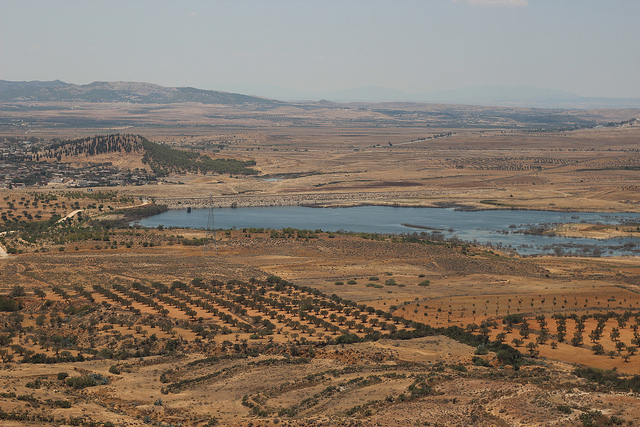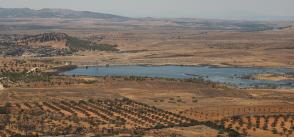
'If the land isn't worked, it decays': Tunisia's battle to keep the desert at bay
With social tensions high and unemployment rife, agriculture offers Tunisians a vital lifeline. But as vast swaths of countryside turn to desert, the race is on to ensure there is land left to cultivate
The dusty Peugeot rumbles along the road, parallel to the ancient aqueduct that once delivered water from the springs of Zaghouan in Tunisia’s Dorsal mountains to ancient Carthage, about 57km north. However, the waters around Zaghouan have long run dry and, if action is not taken soon, so might much of the land around it.
It is not just Zaghouan. “Ninety-five per cent of the [arable] land is in the process of desertification,” explains Sarah Toumi, president and founder of Acacias for All, a social enterprise aimed at checking the descent of Tunisia’s countryside into arid desert. “There is less than 1% of fertile organic material left in the soil, meaning it’s really poor and can easily become desert. By 2030, it will all become a desert if we do nothing.”
Desertification is not exclusive to Tunisia. According to the International Fund for Agriculture Development, no continent, excluding Antarctica, is immune from the combined effects of intensive modern farming, dwindling fresh water supplies and rising temperatures, all of which can reduce fertile soil to desert. However, Africa, containing 37% of the world’s arid zones, and Asia, with 33%, are at acute risk.
Read the full article by Simon Speakman Cordall via The Guardian Environment.
[Photo by Amine Ghrabi | Flickr]







